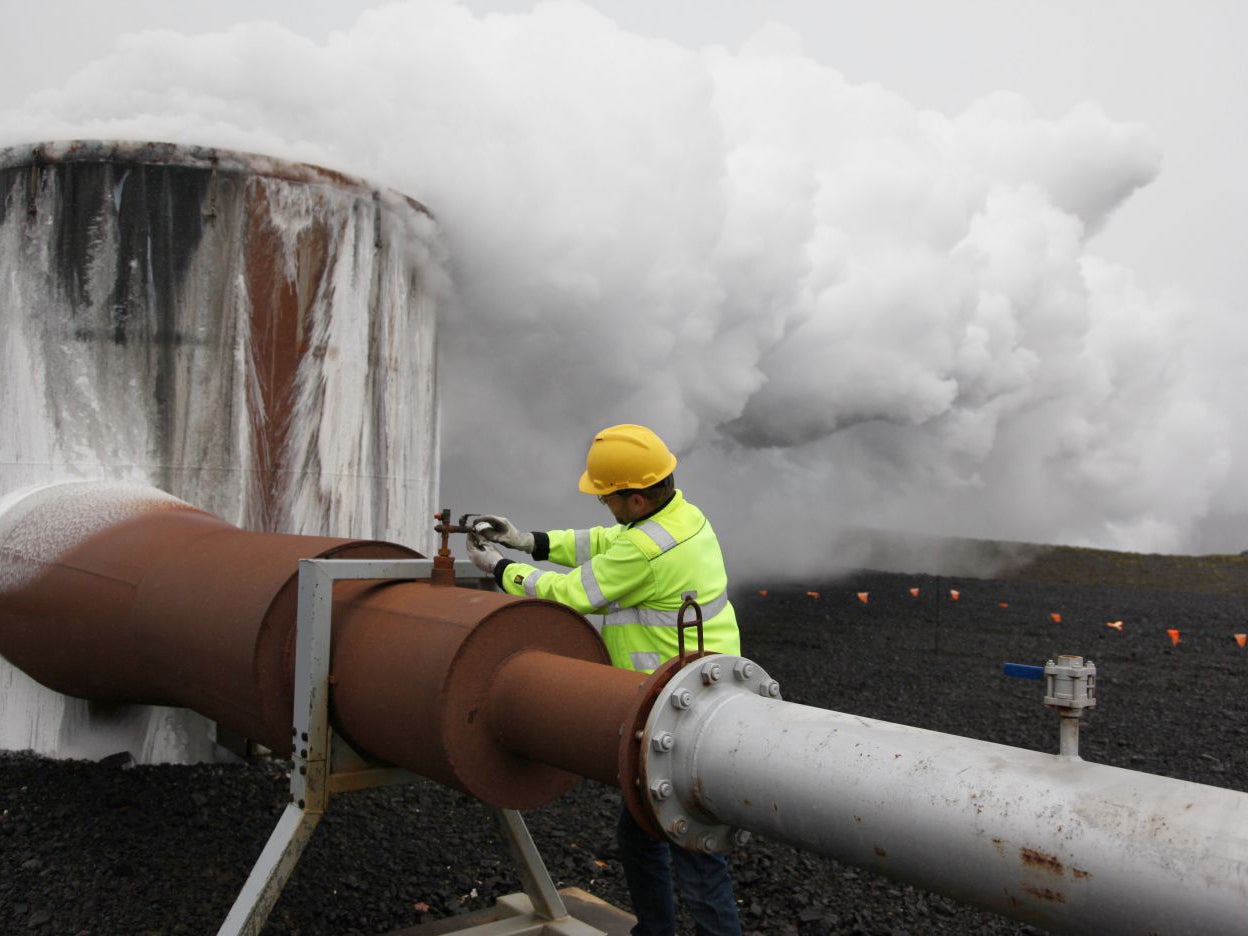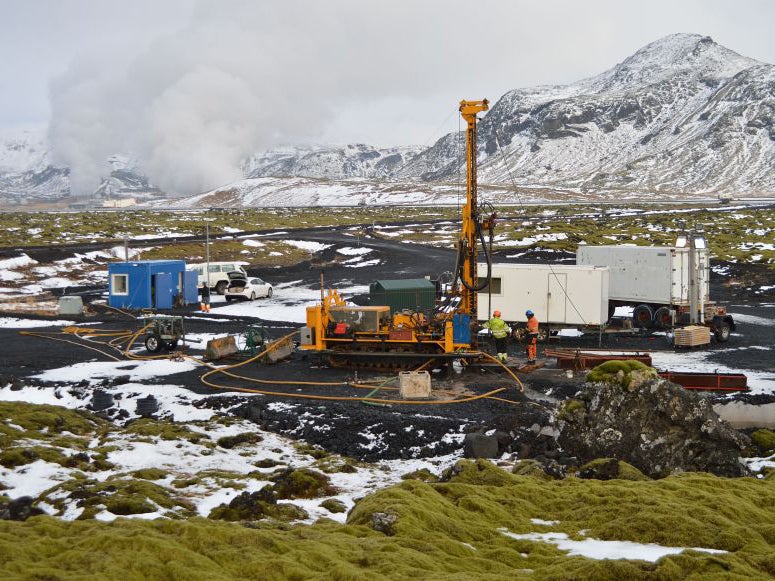Climate change breakthrough as Iceland turns carbon dioxide into stone
'Carbon capture can contribute significantly to reducing carbon dioxide emissions'

Your support helps us to tell the story
From reproductive rights to climate change to Big Tech, The Independent is on the ground when the story is developing. Whether it's investigating the financials of Elon Musk's pro-Trump PAC or producing our latest documentary, 'The A Word', which shines a light on the American women fighting for reproductive rights, we know how important it is to parse out the facts from the messaging.
At such a critical moment in US history, we need reporters on the ground. Your donation allows us to keep sending journalists to speak to both sides of the story.
The Independent is trusted by Americans across the entire political spectrum. And unlike many other quality news outlets, we choose not to lock Americans out of our reporting and analysis with paywalls. We believe quality journalism should be available to everyone, paid for by those who can afford it.
Your support makes all the difference.A radical breakthrough in tackling climate change has been made after scientists found a rapid way to turn heat-trapping carbon-dioxide into rock.
The exclusive two year project, called CarbFix, pumped a carbon dioxide and water mix 540m underground into basalt rock at the Hellisheidi geothermal power plant in Iceland.
The acidic mixture dissolved the rocks' calcium magnesium and formed limestone, permanently and naturally trapping the gas, according to Juerg Matter of the University of Southampton and the lead author of a study detailing the experiment.

The results, published on Thursday in the journal Science, are hoped to offer a new and effective weapon to help fight man-made global warming.
"It's no longer a gas," Dr Matter said. "Basically carbon dioxide is converted into stone."
Even more surprisingly, after only two years scientists found 95 per cent of the gas was captured and converted, far quicker than initial predictions, which suggested the carbon capture and storage (CCS) process could take thousands or even hundreds of thousands of years.
"It's what we hoped for ... and in some ways better," said David Goldberg, a Columbia University geophysicist who praised the experiment. "What's going on here is a natural process being accelerated."
The process can be expensive with the CarbFix experiment costing $10 million, while storing the gas once it has been snatched from the air is another issue.
The gas can be stored underground and is sometimes injected in depleted oil wells, but concerns have been raised about monitoring it and preventing it from escaping.
Injecting it into basalt, which is a plentiful resource around the world, and letting nature take its course can solve the problem, said Dr Matter.
Even more promising is the ocean floor, which is full of basalt and a good place to store the carbon dioxide, said Dr Goldberg.
"Carbon capture is not the silver bullet, but it can contribute significantly to reducing carbon dioxide emissions," said Dr Matter.
Dr Matter told the Guardian, the only issue holding back CCS was a lack of action from politicians: “The engineering and technology of CCS is ready to be deployed. So why do we not see hundreds of these projects? There is no incentive to do it.”
The Iceland project has been increased in scale and is set to store 10,000 tonnes of CO2 a year.
Testing has also taken place in the Columbia River Basalts - an extensive area of the rock in Washington and Oregon.
The UN’s Intergovernmental Panel on Climate Change has said CCS is massively important in tackling climate change, while the Intergovernmental Panel on Climate Change said the cost of halting global warming would double in the absence of CCS.
Additional reporting by Associated Press
Join our commenting forum
Join thought-provoking conversations, follow other Independent readers and see their replies
Comments